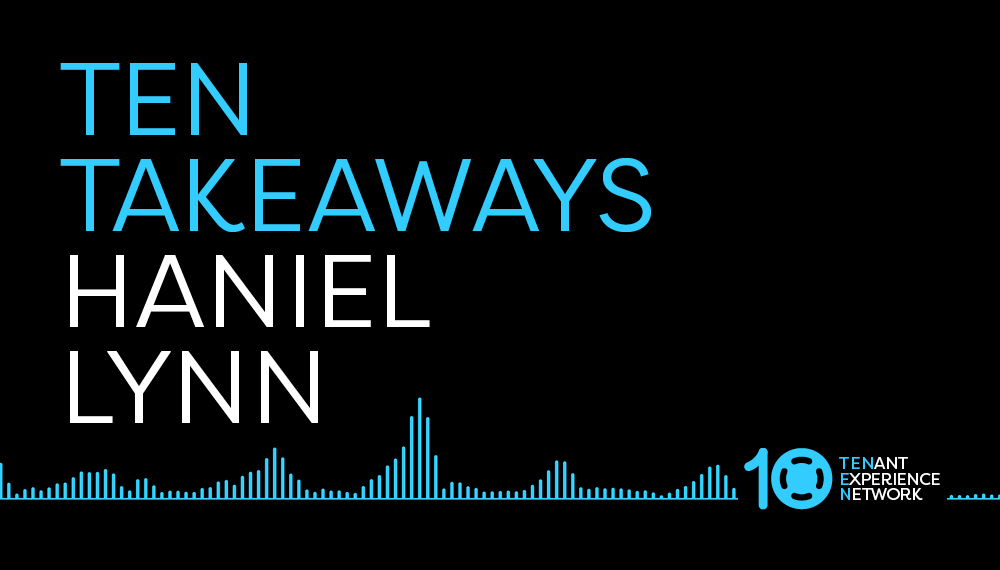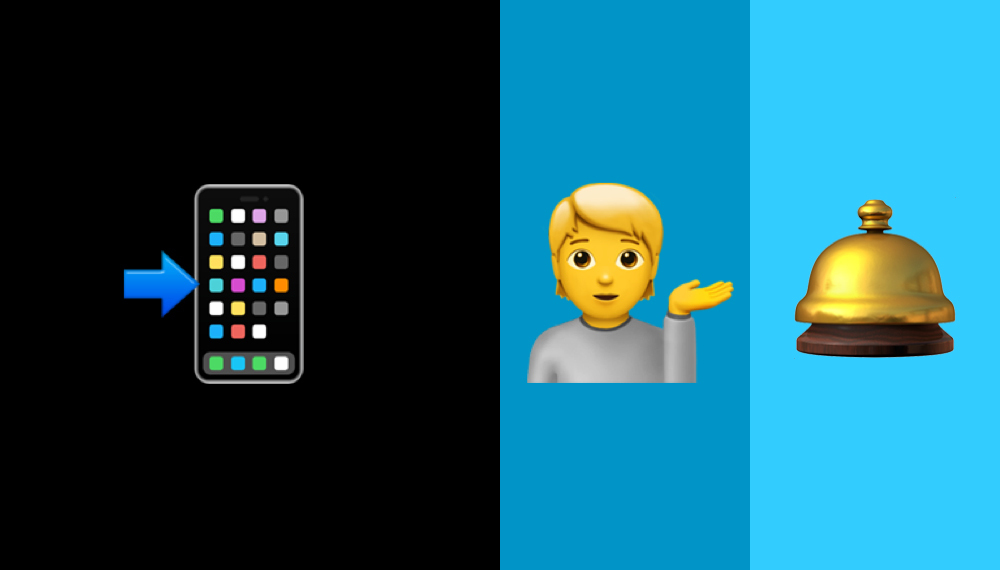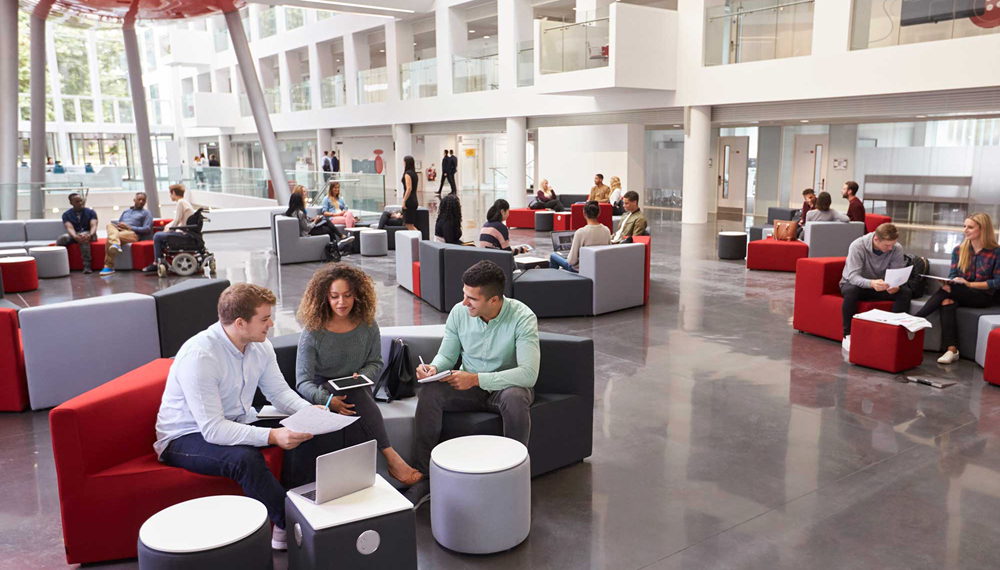
TEN Takeaways from Haniel Lynn, CEO of Kastle Systems
ICYMI: HILO’s David Abrams hosted Haniel Lynn, CEO of Kastle Systems to talk about redefining touchless experience with focus on the end user. Here are some of our takeaways:
Find a company that aligns with your values
Haniel shares the journey he has taken to his current position as CEO of Kastle Systems and talks about how ubiquitous Kastle was in DC. “It’s almost like Kleenex with respect to the Kastle card or that Kastle key that everybody knows in DC (obviously we’re much beyond DC now), but with this sort of amazing reputation.” The company’s reputation focussed on innovation, culture and people. Haniel tells David that “if you (ran) into me in an alleyway somewhere like, ‘hey what are the things that matter the most in terms of driving great companies and great growth,’ I would have probably given you those things”. The importance of good alignment to your own personal values is what he attributes the amazing fit to.
View clip
We’re all a function of our experiences
Showing great humility, Haniel says it’s hard for him to say he’s uniquely suited for his role. He explains, “I think each of us brings a different skillset to whatever leadership role that we step into or get tapped for. And I am not sure that I am unnecessarily, anybody is ever necessarily uniquely suited because everybody brings their perspective into whatever challenge that they’re going to work through.” Haniel continues to explain some specifics from his past that help him to lead the team at Kastle, including “my engineering background helped me to think logically about how to break apart problems. McKinsey taught me the most, probably about how to do business problem-solving rather than just abstract problem-solving overall.”
View clip
Unlock your team’s potential
As the CEO of Kastle Systems, Haniel reflects on his thinking around “how to get the most out of everyone, how to unlock people’s potential, how to listen to them, to understand what they see to understand how we can be better.” The challenge of leadership from his perspective is that “unless I can create an environment or unless I can have the kind of access that allows me to really understand what is happening, what the real problems are, what are the real opportunities are, I don’t know that I’ll ever be able to get after the right stuff or solve the right problems.”
View clip
Leading a team is like conducting an orchestra
David and Haniel use a few metaphors when they discuss leading a team. David likens the work of a CEO to that of a Quarterback in football, understanding that you can’t play every position but knowing each player’s strengths and giving them space to do their job. Similarly, Haniel talks about leadership as a conductor of an orchestra, sharing that “you cannot play the symphony until everybody understands how they fit in.” In a leadership role you need to understand each team member’s motivations, what their ambitions are, and why they are a part of your team in the first place.
View clip
The pandemic’s impact on students
Reflecting on the COVID-19 pandemic, Haniel shares that there were big impacts on how children were educated. “What kind of opportunities had they not [had], who didn’t have maybe the luxury of laptops… but maybe even the parents who can help them with education”. When thinking about initiatives that would be helpful, he wonders about “putting volunteer armies of teachers together, learning groups together, social interaction groups together. I don’t know how you think about just even the small group of people that you can touch and impact, but kids grow up.” These formative years are so critical for children, and looking at supporting their education is important for all of us.
View clip
Technology has enabled productivity
David and Haniel discuss PropTech’s big question, “How will we return to work?” Haniel agrees that there will be a return to the office, citing that “people recognize that there is a certain thing that happens when people are live together, and a level of creativity that you get, or productivity that you get or a different way of engaging and interacting than you get in a 2D format like this, like in a much more 3D experiential kind of way.” Additionally, Haniel looks at some companies that were not utilizing technology to enable their employees to work remotely, and how the flexibility of working from everywhere has created more productivity. He says, “I think the workplace and the collaboration piece retains value, and it becomes a place rather than the place, if that makes sense.”
View clip
Necessity is the mother of adoption
Kastle Systems has held a strong position in the CRE industry for many years, being among the first to develop a truly touchless experience with a mobile credential app. Considering how the COVID-19 pandemic has accelerated the dynamic around amenity or experience, Haniel highlights the notion that “necessity is the mother of adoption.” He shares with David that “we have seen ourselves a big uptick in interest in just the touchless credential, motivated now by the need to feel safer, or to feel like you’re in a healthier work environment without having to pod everything.” There is a significant increase in how actively building owners and operators have had to think about economic well-being, health and safety, and overall expectations.
View clip
Deliver the best experience for end users
David speaks about the HILO platform, sharing that it was built as a consumer brand, understanding what the consumer’s needs and wants are. Similarly, Haniel shares that Kastle has focused so much on the end user experience, and actually controls their own technology stack to ensure that this is possible. With so much “consumerization” in the CRE industry, Haniel says that “people don’t connect the dots” and there’s not a great user experience. By owning the entire ecosystem, Kastle is able to exceed customer expectations, and ultimately create an amazing experience.
View clip
Help people in buildings feel safe
Haniel shares a few details about the KastleSafeSpaces framework, which is rapidly developing tools to help building owners and operators ensure the safety of their tenants. The framework contains five pillars including Touchless Access, Screen In/Screen Out, Contact Tracing, Social Distancing, and the newly added Air Quality. At the core of the system is “making sure that we [Kastle Systems] are helping our clients return their customers, their clients back to the office, their tenants back to the office.” Haniel continues to explain that, “People are going to want to get back to work. They want to feel confident that they can do so safely. And so what are the steps that our clients, whether they are the building-types or the employer-types, how do they arm themselves to enable their policies to be acted upon so that people feel like, ‘okay, now I can come back.’”
View clip
We would like to thank Haniel Lynn for joining us on the TEN podcast and for sharing his journey from early beginnings working at a startup, to now leading the team at Kastle Systems. It is great learning for all of our listeners and an opportunity to gain insights into what it takes to become an innovation leader. If you’d like to hear more of David’s interview with Haniel, click here. Stay tuned for more episodes and takeaways from leading professionals and industry experts who all have something to say about tenant experience in the built world, and the impact that technology is having on the largest asset class in the world, commercial real estate. Until then, wishing you all continued success in building community where you work or live.
- March 28, 2021


